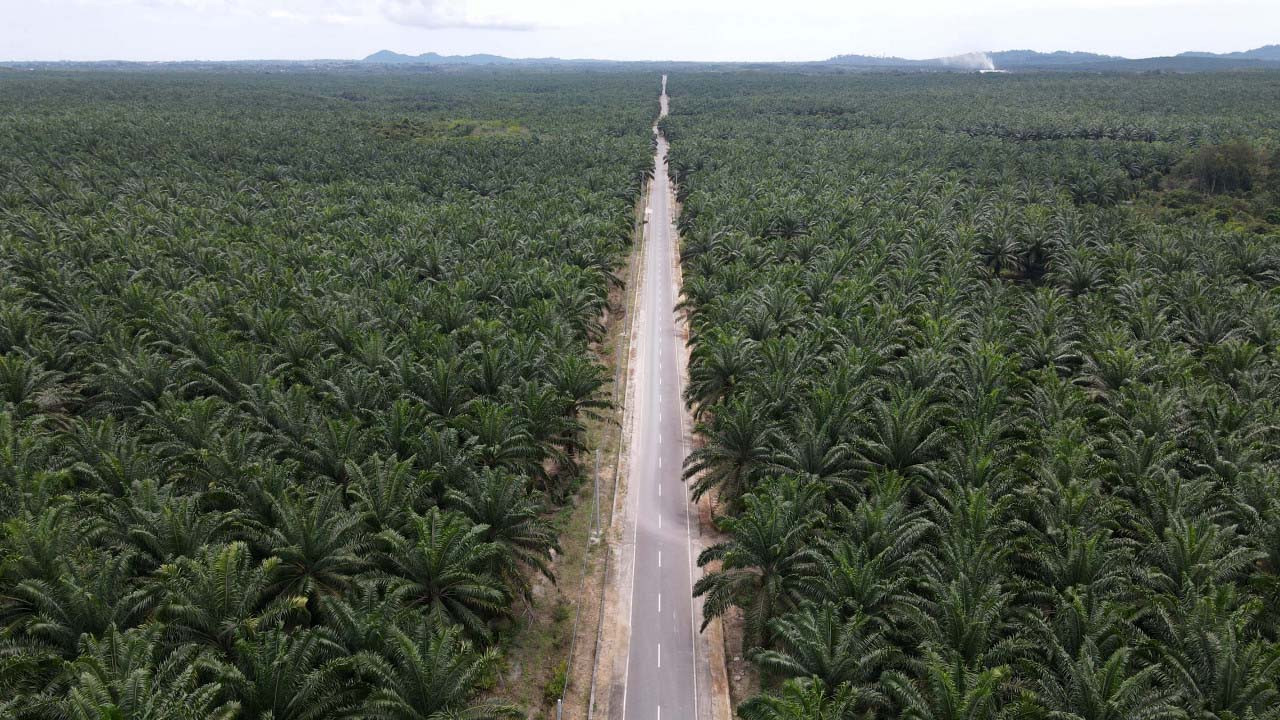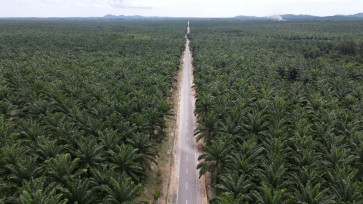Popular Reads
Top Results
Can't find what you're looking for?
View all search resultsPopular Reads
Top Results
Can't find what you're looking for?
View all search results[ANALYSIS] Could expanding ISPO certification be a global solution to Indonesia's palm oil dilemma?
One way to resolve the import restrictions on Indonesian palm oil would be to improve ISPO certification so that it can be accepted as global certification of sustainable palm oil.
Change text size
Gift Premium Articles
to Anyone
P
alm oil has been one of Indonesia most important export commodities over the past two decades. Indonesia’s palm oil production has also gradually increased and the country is now the world’s biggest palm oil producer, with the industry absorbing more than 16 million workers. The palm oil industry’s downstream sector has also become one of the most progressive sectors in Indonesia, providing raw materials for a wide variety of global industries such as food, sanitation and energy.
However, palm oil products are facing difficulties in its most important market, the European Union (EU). In its Renewable Energy Directive (RED II), the EU is mandating that a minimum 32 percent of its energy come from renewable sources like biofuel by 2030. RED II requires that the biofuels intended for EU consumption the come from sustainable commodities that do not contribute to deforestation through indirect land use change (ILUC).
Unfortunately, the EU has assessed that 45 percent of oil palm plantation expansion in 2008-2015 was closely related to deforestation. Palm oil from these high-risk ILUC plantations will be excluded from the EU’s renewable energy target. Consequently, the EU’s palm oil demand for energy could start declining from January 2024.
In addition to RED II, palm oil also faces a “black campaign” in the EU market. Many organizations accuse palm oil products of being unhealthy and the cause of deforestation, biodiversity degradation and the exploitation of underage workers. This negative campaign has led to a growing number of groceries and food producers declaring they were “Palm Oil Free”.
Even though this negative campaign has had minimal impacts, it has spread quite rapidly. This is reflected in the flattening trend of palm oil imports in some EU member states. Annual growth of palm oil imports by volume in Germany, Poland and France averaged 0.6 percent, 2.6 percent and 2.8 percent respectively in 2001-2019, much lower compared to the EU’s aggregate import figure of 6.2 percent. In the more extreme countries like Finland, the import volume of palm oil contracted 8.1 percent during the same period.
Removing palm oil from the list of vegetable oils might be impossible. Palm oil is the most efficient vegetable oil, producing more than 3 tons of oil per hectare. This is much higher compared to other vegetable oils such as soybean (0.4 ton/ha), sunflower (0.7 ton/ha) or rapeseed (0.7 ton/ha). Hence, replacing palm oil with other vegetable oils will drastically increase the land needed to produce the same amount per hectare as palm oil and eventually contributes to deforestation. Therefore, an international restriction on palm oil is not a workable solution to improve environmental quality.
In our opinion, RED II is an unfair trade restriction that does not resolve the fundamental problem. We believe that a win-win solution for both EU member states and palm oil producers, primarily in Indonesia and Malaysia, is to apply relevant technical barriers that carry some environmental and sustainability requirements. In practical terms, this can be reflected by implementing an international standard of certification.


















